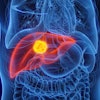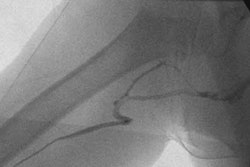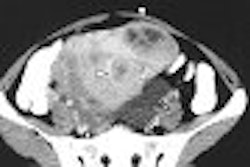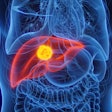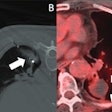SAN FRANCISCO - When coronary bypass surgery is performed, ischemic mitral regurgitation (IMR) must be addressed as this complication is associated with poor long-term survival. But the durability of valve repair for IMR is currently under fire, despite its popularity over replacement procedures. Unfortunately, good postoperative echocardiography results cannot guarantee that the patient will not experience IMR, according to surgeons from Canada.
"Chronic IMR has been shown to be an independent predictor of mortality with survival rates of 40% to 60% at five years. Little is known of predictive factors following mitral valve repair," said Dr. Denis Bouchard in a presentation Monday at the American Association for Thoracic Surgery (AATS) meeting. "The aims of this study were to evaluate the incidence and severity of recurrent mitral regurgitation postrepair; to evaluate the impact of recurrent mitral regurgitation on midterm survival; and to define predictive factors of recurrence."
Bouchard and colleagues are from the Montreal Heart Institute (MHI) in Quebec. Co-author Dr. Arsène Joseph Basmadjian is on the MHI echocardiography research team.
For their study, 78 patients had undergone mitral valve repair for IMR between 1996 and 2002 at the institute; 73 had complete clinical and echocardiographic follow-up at six months and at one year.
"The mean echocardiographic follow-up was 28 months. Review of preop and late follow-up echocardiograms of a subgroup of 18 patients, with echo available for detailed analysis, was performed," Bouchard said.
The mean patient age was 65 years, 67% were male, and the mean ejection fraction was 39%. The majority of patients (67%) had triple vessel coronary artery disease.
The repair technique consisted of ring annuloplasty with an average of 2.6 grafts per patient. Complete revascularization was achieved in 89% of patients. Clinical data and echocardiograms were reviewed to assess the mitral valve immediately after surgery, as well as the rate of recurrence of IMR following repair.
According to the results, early postoperative echocardiography (within the first week) showed mild or trivial IMR in 89.4% of the patients and moderate IMR in 10.6%, with 93.2% of the patients not requiring another operation. During follow-up, recurrent moderate IMR was present in 36.7% of patients and severe MR in 20%.
"Despite good postoperative echo results following ischemic mitral valve repair, 56% of patients had at least moderate IMR at an average follow-up of 29 months," the authors stated in their abstract. "These findings raise questions about the durability of repair as well as the reliability of perioperative echocardiographic evaluation."
Based on Kaplan-Meier survival curves, the results indicated that patients with recurrent mitral regurgitation above 2+ had a significantly higher mortality rate: 65% at five years versus 91% for those with a mitral regurgitation of 2+ or less, Bouchard said.
Finally, the group looked for potential predictors of mitral regurgitation recurrence in the echo subgroup and found that only shorter posterior leaflet tethering distance was found to be predictive.
"Our data raised the following questions: Is the perceived benefit of mitral repair worth the higher recurrence rate?" Bouchard said. "Are additional repair techniques or better patient selection needed to improve outcomes?"
In an invited AATS commentary, Dr. Robert Klautz from Leiden University Medical Center in Leiden, Netherlands, expressed disappointment at Bouchard's results. In a 2004 study, Klautz and colleagues reported excellent results of combined restrictive annuloplasty and coronary artery bypass grafting (CABG) with a near absence of residual mitral regurgitation at two-year follow-up. The group also used transthoracic echocardiographic studies to assess mitral regurgitation (Circulation, September 14, 2004, Vol. 110:11, supplement 1), pp. II103-108).
Klautz suggested that results between the two studies may have differed because of patient selection. The Dutch cohort had lower ejection fractions and larger ventricles. Also, these patients experienced left ventricular (LV) reverse remodeling, which was absent in the Canadian study.
"I've been looking very carefully at your data and also tried to reconciliate the different results," Bouchard responded. "In terms of patient selection, we're dealing with a slightly different patient population…. Our cohort had 29% acute myocardial infarction, 11% reop, and 8% having emergency surgery. All those factors could separate the populations."
As for LV remodeling, in their patients, ventricular dimension and ejection fraction were similar from the preoperative stage to echo follow-up. This was true whether the patient had recurrent mitral regurgitation or not, Bouchard said.
By Shalmali Pal
AuntMinnie.com staff writer
April 12, 2005
Related Reading
Pre-existing mitral regurgitation linked to worse AMI outcome, March 8, 2005
Echocardiographic testing predicts outcome of asymptomatic mitral, March 3, 2005
Cardiac pacing curbs exercise-induced mitral regurgitation, December 27, 2004
Copyright © 2005 AuntMinnie.com

